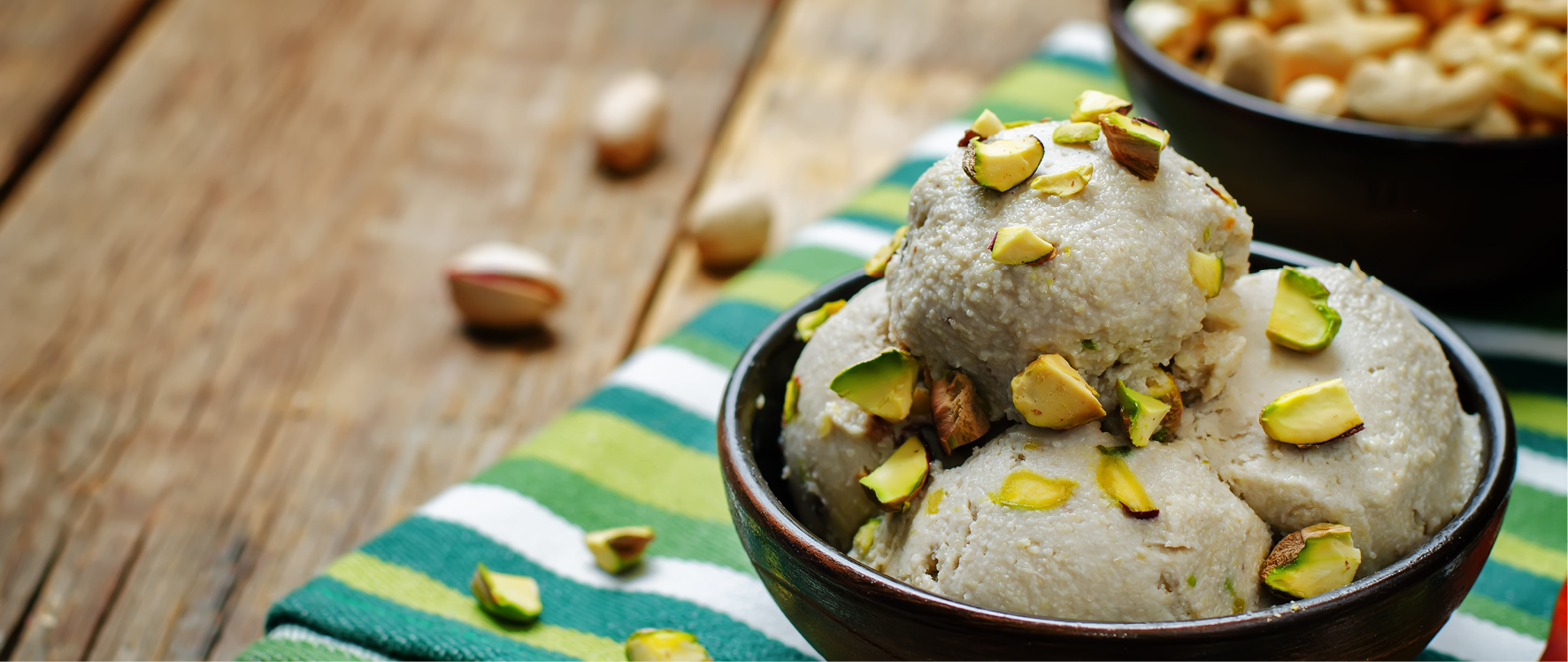
Insight: plant-based drinks, yogurt and ice cream
Health has always been important to people, and in the wake of the COVID-19 pandemic outbreak, the focus on this issue has been growing. This significantly impacts the food industry, leading people to be more aware of how what they consume can positively or negatively affect their immune health. According to a consumer survey conducted by the company Innova Market, as early as the year 2020, 54% of consumers worldwide said they used some of their time to learn about the most suitable ingredients for their health and immune system.
These trends significantly impact the entire plant-based dairy segment, already associated with concepts such as health and sustainability, but often low in vitamins, proteins and nutrients.
In addition to the established plant-based milk segment, products such as yogurt and plant-based ice cream are also on the rise.
Soy keeps being the most widely used ingredient in these products, but other different vegetable matrices can also be found, such as oats, almonds, coconut, rice, but also beans and potatoes. In such products the choice of the protein ingredient is important, as it can contribute to give the final product specific organoleptic features such as texture and palatability which can encourage consumers to buy it.
Trends in Europe, APAC and Americas
According to the report drawn up by the company Mintel, called “A year of innovation in plant-based drinks, yogurt & ice cream, 2021â€, there are several areas of focus and improvement for plant-based drinks, yogurt and ice cream in Europe, Asia-Pacific and the Americas.
In Europe, there are two factors that brands must take into account for their products to be successful: price competitiveness and product sustainability. In detail, plant-based ice cream in Europe turns out to be 25% more expensive than conventional ice cream. In the European context where more consumers are approaching and becoming interested in adopting a flexitarian or plant-based diet, the high price becomes a barrier for purchasing, killing the opportunity for future growth of this market segment. In addition, the issue of product and process sustainability is also becoming a necessary requirement for consumers to buy a product. Brands need to not only to highlight the environmental benefits of plant-based alternatives, but also to ensure that their products are as sustainable as possible, from using local ingredients and short supply chains, to developing sustainable packaging, while maintaining a competitive price with other products on the market.
In Asia-Pacific, the main trend is related to the so-called “better-for-you” products. This trend is also reflected in the segment of plant-based beverages, yogurts and ice creams, with the demand for products that taste good but also have functional properties that benefit health, such as specific proteins or vitamins. For example, according to the Mintel report, 47% of adult consumers in China are looking for plant-based beverages with high protein content. To meet this demand, plant-based beverage, yogurt and ice cream brands are increasingly boosting products with vitamins and minerals, protein and calcium.
However, taste remains the most important feature for Asian consumers, who are demanding a greater variety of flavors and aromas in plant-based beverages, yogurt and ice cream. For example, flavors such as fruit and berries which are popular in conventional dairy products, are less common in plant-based products.
On the other hand, in America, the primary need for plant-based beverage, yogurt and ice cream brands is to persuade consumers on the sustainability of their products. In fact, consumers are not convinced that these products have a positive impact on the environment. This is why plant-based brands need to educate people on the environmental benefits of their products. In addition to this, also in America the demand for plant-based beverages, yogurts and ice creams is that they are complete from a nutritional point of view, improving the ingredients, and enriching them with added vitamins, minerals and proteins.
The opportunity: how to improve your plant-based drink, yogurt or ice cream
Depending on the location, the opportunities for producers of plant-based products may differ, but for plant-based beverages, yogurt and ice cream segment, the key is to make good products that deliver benefits to both the environment in terms of sustainability and human health. To do this, there are several ways to improve products, such as adding fiber, focusing on the health and nutritional benefits, for example improving digestion. The reduction of sugars in favor of the use of natural sweeteners is also an important feature that is able to influence the purchase choice of consumers, allowing them to indulge in a moment of pleasure while enjoying a drink, yogurt or plant-based ice cream, which is good, rich in proteins, minerals and vitamins, but low in sugars.
